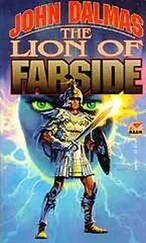John Dalmas - The Yngling
Здесь есть возможность читать онлайн «John Dalmas - The Yngling» весь текст электронной книги совершенно бесплатно (целиком полную версию без сокращений). В некоторых случаях можно слушать аудио, скачать через торрент в формате fb2 и присутствует краткое содержание. Жанр: Фэнтези, на английском языке. Описание произведения, (предисловие) а так же отзывы посетителей доступны на портале библиотеки ЛибКат.
- Название:The Yngling
- Автор:
- Жанр:
- Год:неизвестен
- ISBN:нет данных
- Рейтинг книги:5 / 5. Голосов: 1
-
Избранное:Добавить в избранное
- Отзывы:
-
Ваша оценка:
- 100
- 1
- 2
- 3
- 4
- 5
The Yngling: краткое содержание, описание и аннотация
Предлагаем к чтению аннотацию, описание, краткое содержание или предисловие (зависит от того, что написал сам автор книги «The Yngling»). Если вы не нашли необходимую информацию о книге — напишите в комментариях, мы постараемся отыскать её.
The Yngling — читать онлайн бесплатно полную книгу (весь текст) целиком
Ниже представлен текст книги, разбитый по страницам. Система сохранения места последней прочитанной страницы, позволяет с удобством читать онлайн бесплатно книгу «The Yngling», без необходимости каждый раз заново искать на чём Вы остановились. Поставьте закладку, и сможете в любой момент перейти на страницу, на которой закончили чтение.
Интервал:
Закладка:
"But here is a place of low sand hills along the coast, covered with forest, and only a few fishermen live there." He pointed to a stretch of Polish coast. "And behind the sand hills are marshes, where knights cannot cross on their horses. If the Sea Eagles landed there, it is likely that they would not be strongly attacked so long as they stayed there.
"And what if the Otter Clan followed, and the Bears, and then others? This district behind the coast," he continued, his big finger circling inland, "also has large forests. If enough warriors landed on the coast, they might march in strength and defend and hold some of the forest while still more of the people landed-freeholders, women, children and thralls. If all the clans landed there, I believe they could then cross the lands to the south, regardless of the armies raised against them, and take and hold a land near the southern sea."
The old chief looked around the split log table for a moment without speaking, and a small smile began to play around the corners of his wide mouth. "I see that Jaavklo of the Gluttons wants me to sit so that he may speak. He wants to ask me how I propose to move the tribes across the sea in a few score fishing boats that cannot take more than a dozen men each, besides the oarsmen.
"I led the Wolf Clan before I was chosen chief of the Svear, and I have talked about this to the warrior who now is chieftain of the Wolves, Ulf Vargson. He in turn held council with his warriors and freeholders. And it is agreed. The Wolf Clan will send out half a dozen fishing boats of warriors with Sten Vannaren to guide them. They will find this place I spoke of," he pointed, "land the warriors and come back for more.
"But on the second trip, all our boats will go, and most of them will go here"-he pointed to a harbor on the Polish coast-"where there are ships large enough to carry a hundred men besides the oarsmen. And they will seize such of those ships as they can, returning here with them."
Strong yellow teeth began to show in the torchlight around the table.
"The Wolf Clan would go alone if they had to, but I know they won't have to. I know the other clans too well, from many raids and fights. And the Sea Eagles had decided to go before we did. If all the clans unite, our combined strength can bring us to the southern sea.
"Look!" Axel Stornave knelt for a moment and picked up a bundle of pine branches that had lain on the floor behind his seat. He held one branch up and snapped it in his hands. "By itself it has little strength," he said. "But now"-he took as many together as he could wrap his huge hands around, with a great effort strove to break them, then held them overhead unbroken.
"Which of you will go back to your people and join them with us?"
Every man around the table stood, most of them shouting approval. Axel still stood, with one hand in the air, and in a few moments the others settled to the benches again, aware that he was not done.
"I knew it," he said. "And when you take this matter to your people, they will agree to it, for this winter has caused every man to think. But we can't delay. If we can make no crop this summer except of hay, and if next winter is at all like this one has been, we will be weak and hungry in another year. We must all be gone before winter comes again. Nor can we winter across the sea except in force, for we must be able to take what we need by force from the people there.
"Our harbor is free of ice now, at last. Our people already have been killing the rest of the cattle and drying the meat over fires. We will send the first boats on the day after tomorrow, the weather willing. After our first war parties have landed, two boats will go here." He pointed to the island of Bornholm, between the Swedish and Polish coasts. "One will wait to guide the first boats of the Jotar to the landing place." He looked down the table at one old enemy, Tjur Blodyxa, and then in the other direction at another, Isbjorn Hjelteson. "The other will guide the first boats of the Norskar." The old man grinned. "Maybe you can get the Danes to 'loan' you some ships."
A scowl had begun to grow on Tjur Blodyxa's surly face, and he stood without leave. "And who will lead this expedition?" he asked.
Axel Stornave said nothing for a moment, savoring the surprise he had for the Jota chief. "Not me," he said. "I'm too old. That leadership is what we must decide next."
It was past midnight. They had agreed that the tribes would act independently in moving their own people, except that the Wolf Clan of the Svear would pick the place. But the war leader of those who had landed would also be of the Svear. Then the clan chieftains of the Svear elected Bjorn Arrbuk as war leader. He was the tribe's most famous fighter and its most famous living raid leader. Afterward, they questioned Sten Vannaren about the place they would land and the country where they hoped to go.
Now they were going to bed. Axel Stornave stepped out the door to look at the night and found new snow ankle-deep on the ground.
13.
KAZI, TIMUR KARIM (A.D. 2064-2831), psionicist and emperor. Born in Kabul, Afghanistan, he received a Ph.D. in neurophysiology from the University of Lucerne in 2087; lectured at London University, 2087-2090; was professor of psionics at Damascus University, 2090-2094; and held the Freimann Chair of Psionics Research at the University of Tel Aviv, 2094-2105.
In 2096, Kazi developed the "esper crystal," which became the functional element of the psi tuner. At age forty-one, although in chronically poor health, he was one of the few survivors of the Great Death of 2105. He also survived the difficult and primitive conditions that followed the plague, presumably by dominating other survivors.
Seriously afflicted with asthma and without effective medicines, he eventually developed a process of ego-transfer believed to involve the use of drugs and the psi tuner, transferring his ego from his aging and debilitated body to one younger and healthier.
As a child, Kazi had been offensively egotistical, effectively alienating himself from normal human relationships. This trait intensified with his brilliant scientific successes and his increasing ability to read minds and dominate others. His development and use of ego-transfer, with the near immortality it provided, probably furthered the pathological deterioration of his personality.
Sometime about the middle of the twenty-second century, Kazi disappeared. He seems to have developed a self-controlled psionic means of suspended animation. It has been suggested that he used this to mark time until an increased population and further socio-economic development provided something more gratifying to dominate. Legends indicate that he was worshipped as a god at the time he disappeared and that periodic living sacrifices of young men were made at his tomb, believed to have been a cave in the Judean Hills. Perhaps they were used for ego-transfers. If so, he may occasionally have emerged to maintain the legend and select his next body.
He became active again sometime about 2750, and from that time our picture becomes less conjectural again. Gradually he came to dominate the Middle and Near East as far south as the Sudan, as well as much of the Balkans, ruling some of the territory directly and some of it as tributary provinces.
Kazi developed a culture specifically for his army. Each level practiced a harsh domination of the lower ranks, and all ranks brutalized slaves and subject peoples. The utmost in cruelty was not merely permitted, but demanded of the soldiers. Discipline was based on fear, the fellowship of mutual depravity, and a supersititous awe and terror of the ruler. He called them "orcs," after an army of subhuman monsters in a classic of pre-plague fantasy fiction, The Lord of the Rings. (See Tolkien, J.R.R.) After the first or second generation, all orcs resulted from forced matings between his soldiers and captive women, the offspring growing up in vicious camps whose regimens were designed to eliminate the weak and to produce the orc personality.
Читать дальшеИнтервал:
Закладка:
Похожие книги на «The Yngling»
Представляем Вашему вниманию похожие книги на «The Yngling» списком для выбора. Мы отобрали схожую по названию и смыслу литературу в надежде предоставить читателям больше вариантов отыскать новые, интересные, ещё непрочитанные произведения.
Обсуждение, отзывы о книге «The Yngling» и просто собственные мнения читателей. Оставьте ваши комментарии, напишите, что Вы думаете о произведении, его смысле или главных героях. Укажите что конкретно понравилось, а что нет, и почему Вы так считаете.








